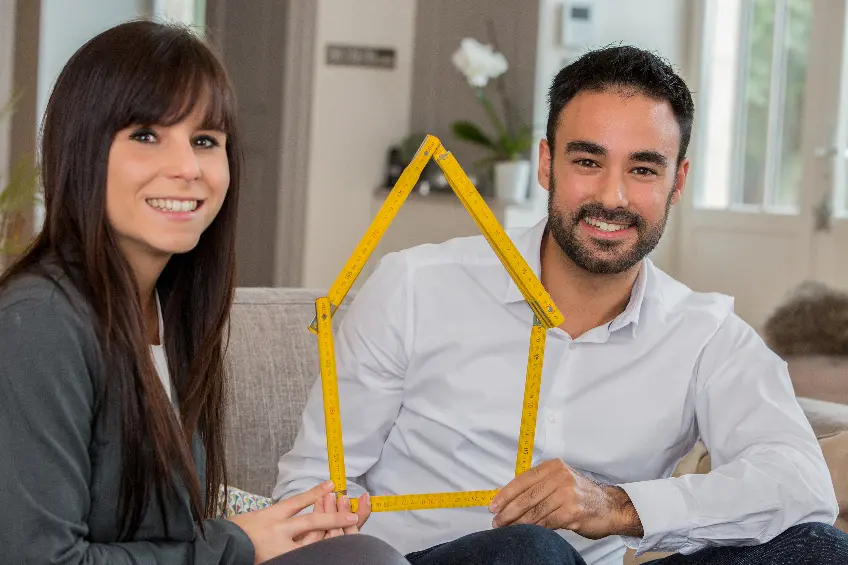
Unlock Your Home’s Potential with Cash Out Refinancing for Home Improvements
Should You Do Cash Out Refinancing for Home Improvements or Get a Home Equity Loan?
Are you considering making home improvements this year? Maybe you want to update your decor, redo your deck, or take on a project like a kitchen renovation. You may have been contemplating home improvements for a while, or maybe more time at home during the pandemic got you thinking about ways you can update your house. Either way, you’ll need funding for these projects.
In this article, we’ll explain ways you can use your VA home loan to generate extra income for home renovations. We’ll cover cash-out refinancing, home equity loans (second mortgages), and home equity lines of credit (or HELOCs). Stick around to read about the pros and cons of each of these options, plus our recommendation based on our lending expertise!
Should You Refinance with Cash Out for Home Improvement Projects?
A cash-out refinance is a great option for home improvements. By definition, a cash-out refinance takes cash out of your loan for you to keep. How does this work? When you get a cash-out refinance loan, you get a loan amount that is actually greater than the amount you still need to pay off on your current home mortgage. Say you owe $100,000 on your home. A cash-out refinance would get you a loan amount of more than $100,000. For example, you might get a loan for $125,000. This means you can keep the $25,000 (minus loan closing costs) and put it toward those home improvements!
“We had a great experience applying for a VA loan with HomePromise.” – Martha W.

VA Debt Consolidation Loans & Military Debt Consolidation
Even with the best of intentions, bills can start to pile up. From unexpected medical bills to high interest credit cards, debt can happen to anyone. Other expenses like college tuition, delinquent taxes, and second mortgages can also cause financial stress. For veterans and military families currently experiencing financial difficulties, VA military debt consolidation loans can help.
The great thing about a cash-out refinance is that the Department of Veteran’s Affairs requires that it benefit you. A cash-out refinance loan must give the borrower a net tangible benefit as specified by the VA’s cash-out refinance quick guide. This could mean you’re able to pay off your mortgage faster, have lower monthly payments, get rid of monthly mortgage insurance or reduce your interest rate.
However, a cash-out refinance isn’t the only way to fund your home improvement dreams. Keep reading to hear more about home equity loans and HELOCs!
Cash Out Refinancing vs. Home Equity Loan
There are a lot of similarities between a cash-out refinance loan and a home equity loan. They are both based on equity, or the portion of your home that you own and are not currently paying off. If you’ve been paying off your home for a long time, you’ll have paid off a solid amount of your current mortgage, which means you have significant equity in the home. Another source of equity is appreciation of your home’s value. 2021 is a seller’s market, which means homes are appreciating in value nicely. Chances are, if you’ve owned your home for several years you may have equity in your home right now! This makes 2021 a great time to take advantage of either of these options get cash out.
A cash-out refinance loan and a home equity loan both get you money to use at your discretion at closing. Both are great for funding your dream home improvement project! You’ll need to remember that you have to pay for closing costs. In either caseBut, if you work with a VA lender like HomePromise , qualifying for a VA loan means that you may be able to borrow 100% of your home’s value. It’s worth noting that most VA lenders will cap the value you can borrow at 90% or lower. But HomePromise may approve you for 100% of your home’s value! A home equity lender may cap you at 80%, 75% or even lower.
A cash-out refinance is unique because, like any refinance, it replaces your current home loan. Because they are backed by the VA, cash-out refinances typically come with low competitive interest rates that may lower your monthly payments. Another great feature of a VA cash-out refinance is that you can use it to convert a non-VA loan to a VA loan.
A home equity loan is actually a second loan on your home. Rather than a refinance, it adds a second loan to your property. When compared to a cash-out refinance, it usually comes with higher interest rates, than VA mortgages since second loans often have higher interest rates than first loans. Also, the term of a second mortgage may be much shorter than a VA loan which is allowed to be a 30 year mortgage. Some home equity lenders restrict you to a 15- year loan or even a 5- or 10- year loan. That makes your mortgage payment on a home equity loan much higher than a 30- year VA loan. Here, cash-out refinances have the advantage, because they count as the first loan on the property.
But the options don’t stop there. Another possibility that you may have heard of is a HELOC, or a home equity line of credit. In the next section, we’ll explain how HELOCs compare to cash-out refinances and home equity loans.
Home Equity Loans and HELOCs vs. Cash Out Refinancing
Just like cash-out refinances and home equity loans, HELOCs are based on the equity in your home. But HELOCs are more similar to home equity loans than cash-out refinances. That’s because a HELOC is not the primary loan on your property – like a home equity loan, you would get a HELOC in addition to your current mortgage because it is considered a second mortgage.
Functionally, home equity loans and HELOCs work differently. Home equity loans give you a lump sum of money at closing, which you are then able to use for your home improvements. A HELOC is just what it sounds like – a line of credit. That means you have a credit limit and you can borrow as much as you want up to that limit. But you don’t get that money up front. Instead, yYou’re given a draw period, which is a length of time (for example, five or ten years) during which you can borrow up to your credit limit. The only requirement for this is that you make interest only payments during the draw period and stay below your credit limit. This might sound nice;, since you can determine how much money you actually need to borrow for your home improvements as time goes on. But once that draw period is over, you’ll have to start paying back what you’ve borrowed. Typically, these payments are pretty big, and borrowers often struggle to make them. I’m sure you’re wondering how big the payments can get. Well, you may see your payment double or triple when the draw period is over.
In terms of financial implications, a big difference between a home equity loan and a HELOC comes down to interest rates. A home equity loan has a fixed interest rate and fixed monthly payments, which means your payment won’t change over the loan term. But a HELOC has a variable interest rate. On top of the increased monthly payment after the draw period, for many HELOCs your lender could actually increase your interest rate at any time. This means you could be stuck paying huge big monthly payments that you didn’t anticipate.
We recommend that, whatever you decide, be very cautious with HELOCs. They are just too risky for the most borrowers. Even if you are very confident in your ability to budget for increased monthly payments after your draw period, the variable interest rate of HELOCs means that home equity loans and cash-out refinances are a better option.
Why Cashing Out is Easier for Most People
When it comes down to it, we recommend you look into a cash-out refinance loan first. When compared to a home equity loan, it usually offers better interest rates. Plus, refinancing and getting a new first mortgage instead of getting a second loan means you only have one home loan to worry about, which simplifies the process. Now is a great time to take advantage of low interest rates and improved home equity thanks to home appreciation in 2021. All in all, a cash-out refinance is both an easier and smarter financial decision to fund your home improvements.
Cash Out Refinance with HomePromise
When looking for a lender to help you fund your home improvements, look to us first! At HomePromise, we are committed to understanding your unique situation. Plus, we have been known to lend provide Veterans and active duty service members with a 100% loan-to-value cash-out refinance option that most lenders don’t have. This means you may receive more funds from your cash-out loan with us than with other lenders. Prequalify with us today to get a sense of what we can may be able to do for you.
Even if you are not sold on a cash-out refinance over a home equity loan, we recommend you call now at 800-720-0250 to speak with our home loan experts! We are here to answer your questions. Applying with us is always free – that’s the HomePromise Way.





